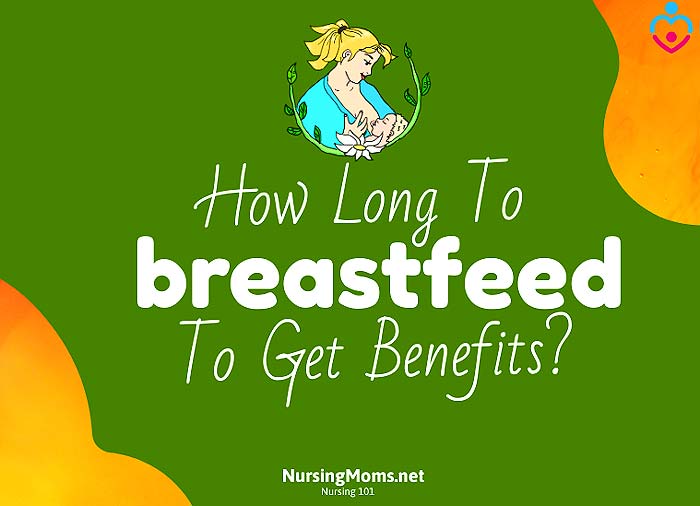
How Long To Breastfeed To Get Benefits? Breastfeeding is the best thing you can do for your newborn. Babies get a lot of nutrients from the breastmilk, and they create a unique connection with their mothers during this time.
But what are the advantages of breastfeeding, and even more important, how long should you breastfeed your child to reach all these advantages? This is something many new moms wonder about.
Certain medical conditions might limit the breastfeeding time or even take it off the list, and these should be considered as well.
In this in-depth guide, we will touch all these aspects and many others so you can offer your baby the best breastfeeding months!
Jump to:
- How long to breastfeed to get benefits?
- Importance of Breastfeeding
- First 6 Months
- Benefits of Breastfeeding for Baby
- Benefits of Breastfeeding for mom
- Benefits of breastfeeding by month
- Long term benefits of breastfeeding on Mother
- Prolonged or Extended Breastfeeding
- Benefits of Exclusive Breastfeeding
- How long does a 3-month-old nurse?
- Key References
How long to breastfeed to get benefits?
 The medical community, such as the World Health Organization (WHO) as well as the American Academy of Pediatrics (AAP) recommend mothers to breastfeed their babies for the first 6 months exclusively.
The medical community, such as the World Health Organization (WHO) as well as the American Academy of Pediatrics (AAP) recommend mothers to breastfeed their babies for the first 6 months exclusively.
- This means that up to the age of six months, a baby doesn't need any other form of feeding but breastfeeding. This is, of course, the ideal case as there might be different situations that affect the breastfeeding process.
- After 6 months, solid food should be introduced, but breastfeeding remains on the daily menu for up to 2 years.
Suggested Reading:
![]()
Importance of Breastfeeding

You hear about how important it is to breastfeed your baby, but why is it essential might be a common question for many mothers. The importance of breastfeeding goes to many levels.
- Your baby gets the right type of nutrients to start growing. The most crucial advantage of breastmilk stays in the quality of the milk. The amount of protein, sugar, fat, and vitamins found in breastmilk is not something you can find in any other food. Your child needs to grow healthy and get ready for different types of food.
- There is a special connection between the baby and the mother that is empowered during breastfeeding. The emotional relationship between you and your baby is growing very strong during breastfeeding. You will both feel attached to each other in a priceless way, and the benefits of this connection will last for a lifetime.
- Breastfeeding boosts the baby's immune system. As a mother, your main concern will be to keep viruses and diseases away from your baby. While this might be hard to do, you can give them the immune system they need to fight such medical conditions by breastfeeding them.
- It is a great way to recover after birth and get your emotions under control. Getting back in shape after giving birth can be a struggling phase. You will have emotional challenges as well as an extra bodyweight that you want to lose. Breastfeeding can help you with both. It is going to help you burn calories and look better as well as balancing your hormones. Women who breastfeed have lower risks to develop depression after giving birth.
![]()
First 6 Months
As we previously mentioned, 6 months is the optimum period to breastfeed your baby. This happens thanks to the nutrients breastmilk offers. This milk is the perfect mix of protein, carbs, and fats to help your little one grow.

- It will keep your baby hydrated enough as it is 88% water, and you will not have to feed anything else to your child.
- Once your child reached 6 months of age, you should start adding other types of food to their diet without taking the breastfeeding out of the menu entirely.
- You can keep 2 or 3 breastfeedings a day until your baby gets to two years old.
The first 2 years are the minimum age recommended by the medical community when it comes to breastfeeding. But some mothers stretch this phase beyond this time.
- Basically, after 6 months, mothers should keep breastfeeding on-demand as they introduce fruits and vegetables to their child's diet.
- The WHO suggests covering 50% of the calories a baby needs in a day with breastmilk between six months and 12 months.
- Later on, the breastmilk should cover 25% of the daily calories until 2 years of age.
![]()
Benefits of Breastfeeding for Baby
As crucial as breastfeeding is for your child, it will bring different benefits at different ages. A three months old baby will receive the breastmilk in a different way than a newborn.

- The first days after birth: Babies should be placed next to their mother for their early breastfeeding only hours after they were born. This gives them a tremendous and profound connection with their mother. In the first days, the baby receives the colostrum. This is a yellow milky substance that is rich in antibodies and nutrients to help your baby survive.
- The first and second months: Further on, as breastfeeding continues, your baby will start receiving nutrients like protein, fat, and carbs from the breastmilk. This is the first and most important form of immunization your baby receives. During this stage, babies can be protected through breastfeeding against ear infections, chest infections, diarrhea, as well as other medical conditions.
- The third and fourth month: During this phase, breastmilk will offer your baby protection against potential allergies. It will also support the development of the digestive system.
- The fifth and sixth months: At this stage, breast milk is still essential for your child. It will offer your baby vital vitamins such as vitamin A. Breastmilk is also a great source of iron and protein, which are easier absorbed at this age.
- After six months: Even if breastfeeding is not exclusive at this point, it is still essential nutrition for your baby. Now you should start introducing solid food to your toddler but still breastfeed them on demand. At this age, breastmilk continues to offer nutrients and energy to your child, and it will do so until they are two years old.
![]()
Benefits of Breastfeeding for mom
Breastfeeding has a wide range of benefits for mothers. This is not just something you do for your child's health but also for yours. While your baby will get valuable nutrients during breastfeeding, you will gain outstanding stability, as well.

- The influence of breastfeeding on the mother's body. When it comes to your body, breastfeeding can help you recover faster from pregnancy and giving birth. It will help your uterus contract and reach its original form more quickly. Also, breastfeeding will help you lose weight that you most likely gained during pregnancy.
- Breastfeeding and your emotional well being. Breastfeeding can have a significant impact on your hormones and, therefore, your emotional state. After giving birth, many mothers are at risk for postpartum depression. But if you choose to breastfeed regularly, you have a lot more chances to reduce these risks. You will get your body in balance and keep your emotions under control.
- Priceless connection with your baby. One of the most important benefits of breastfeeding is an invaluable connection developed between the mother and her child. This is a unique experience that only you two will share, and it can be the beginning of the most important relationship in your life!
![]()
Benefits of breastfeeding by month
Breastfeeding is not only vital for the baby but also for the mother. These benefits are different in certain stages, but they shouldn't be neglected. After all, breastfeeding is the program your body is set to follow once you become a mother.
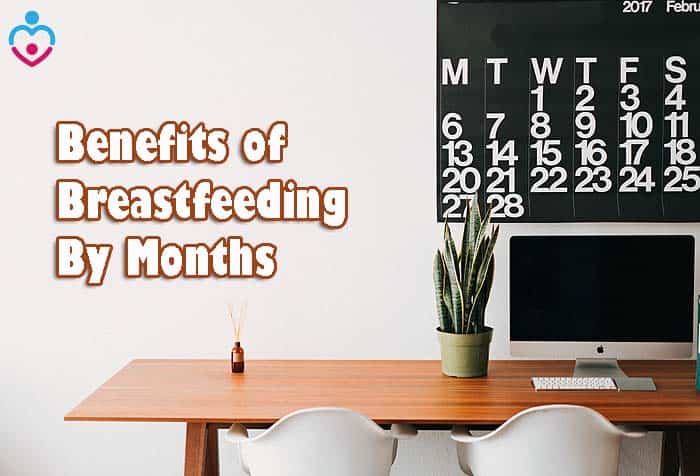
- Breastfeeding in the first weeks: At the beginning of this phase, the mother will start producing milk, from colostrums to regular milk to feed her child. This stimulates the production of antibodies in the body, as well. In this developing stage, breastfeeding also helps the uterus contract. This reduces the belly fat and helps the body go back to normal after giving birth.
- Second to the fourth month of breastfeeding: Once you get used to breastfeeding your baby, you will notice that you spend a lot of calories doing so. Doctors suggest that breastfeeding can consume up to 500 calories a day. This will help you lose weight faster and get back in shape.
- During the fifth and six months of breastfeeding: This is a time when your body will not only be used to breastfeeding, but it will also find it a necessity. Your breasts will be stimulated enough to get in a routine of producing milk. This will maintain your breasts healthy and risk-free of any medical conditions.
- After six months: If you choose to keep breastfeeding your baby, the emotional benefits of this decision will be visible. You will be less depressed, and your hormones will be in balance for a long time. This should help you adapt to the new mother status more healthily and quickly.
![]()
Long term benefits of breastfeeding on Mother
Besides the immediate benefits of breastfeeding, you will also find a wide range of long term advantages. Here are the most important benefits that you can enjoy in the long run if you choose to breastfeed your baby!
- Your body will release oxytocin during breastfeeding. Oxytocin is also known as the love hormone, and it has incredible benefits on your body and emotional health. This hormone is going to help your uterus contract and reach its original shape. It will also support the lovely relationship you develop with your child. So, the more you breastfeed, the more you will enjoy the benefits of oxytocin.
- You reduce your risk of iron anemia. If you breastfeed for a longer time, your body will produce enough iron to keep anemia and deficiencies away. After pregnancy, women are particularly exposed to iron deficiency, which makes breastfeeding a great solution to this issue.
- Breastfeeding reduces significant chronic disease risks. If you choose to breastfeed your baby, you might reduce your risk of developing breast cancer, endometrial cancer as well as ovarian cancer and osteoporosis. The density of your bones will be increased for the long term if you choose to breastfeed.
![]()
Prolonged or Extended Breastfeeding

When it comes to prolonged breastfeeding, many mothers wonder if this has any side effects or maybe some extra benefits.
- General knowledge considers breastfeeding after one-year-old to be extended to another year. There is a culture that qualifies to breastfeed as extended only after the baby reaches 2 years old.
- Certain studies show fewer risks for illnesses in toddlers who are breastfed for more than 12 months. Also, these toddlers are having a higher chance of survival, thanks to the increased antibodies found in breastmilk.
- Some studies consider that breastfeeding has a positive impact on the baby's IQ level.
![]()
Benefits of Exclusive Breastfeeding
Exclusive breastfeeding is the first form of breastfeeding for a baby who is not alternatively fed with formula.
- If you do choose to mix breastmilk meals with formula meals, that would be a combined feeding. In the first six months of life, your baby doesn't need any other form of food besides your breastmilk.
Here are the main reasons why you should breastfeed your baby exclusively.
- It is the type of food their digestive system can process and assimilate. Breastmilk is the only type of food (except formula) that your baby will be able to enjoy for the first months of life. Their system is not yet developed enough to handle solid food, so you shouldn't take any risks with such food in the first six months.
- Exclusive breastfeeding is a significant immunity boost. Once your baby is born, they are no longer protected by your sterile body environment. This means that they can get in contact with different bacteria quickly. However, breastfeeding will give your baby the right antibodies to fight potential viruses and diseases.
- Breastmilk contains all the nutrients your baby needs. Not only that, breastmilk is rich in protein, sugar, vitamins, and fats, but it is also in a form that your baby can assimilate easy. This is crucial for the health of your little one and their growth.
![]()
How long does a 3-month-old nurse?
A crucial point for many mothers who breastfeed their babies in 3 months of age.
- At this stage, your baby will start to sleep more during the night, which means they will eat less in this period.
- Growth sprouts are also common once the 3 months level has been crossed. If, in the first few weeks of your baby's life, they needed to eat every three hours, now, you can expect them to eat around five meals a day and maybe one during the night.
![]()
But even with these statistics, babies can be very different. Some nurses more while others nurse a lot less. Some babies will struggle to latch on the breast, and others will find this to be a natural step.
As far as one feeding goes, you can expect this to last anywhere between eight minutes and forty minutes. Chances are that you will discover what your baby's pattern is soon enough once you start breastfeeding.
But if your baby is nursing less than five times a day at three months or if one feeding lasts less than 8 minutes or more than 1 hour, you might want to contact your doctor.
These can be signs of certain medical conditions that you want to treat as soon as possible to avoid all complications.
Breastfeeding is not always a difficult phase as long as you have all the information and help that you need. But it can be a challenging phase for both the mother and the baby.
Even if you find obstacles during your breastfeeding months, it is essential to not give up on it. The benefits it can bring to both you and your child are priceless, and they are worth all the effort!
![]()
Key References
- "Breastmilk Information - Infant Nutrition Council Infant Nutrition Council". Accessed November 08, 2019. Link.
- "WHO | World Health Organization". Accessed November 08, 2019. Link.
- "AAP.org". Accessed November 08, 2019. Link.
- "Why Should I Breastfeed? - familydoctor.org". Accessed November 08, 2019. Link.
- "Breastfeeding and Losing Too Much Weight". Accessed November 08, 2019. Link.
- "What Is Colostrum? | Parents". Accessed November 08, 2019. Link.
- "Oxytocin | You and Your Hormones from the Society for Endocrinology". Accessed November 08, 2019. Link.



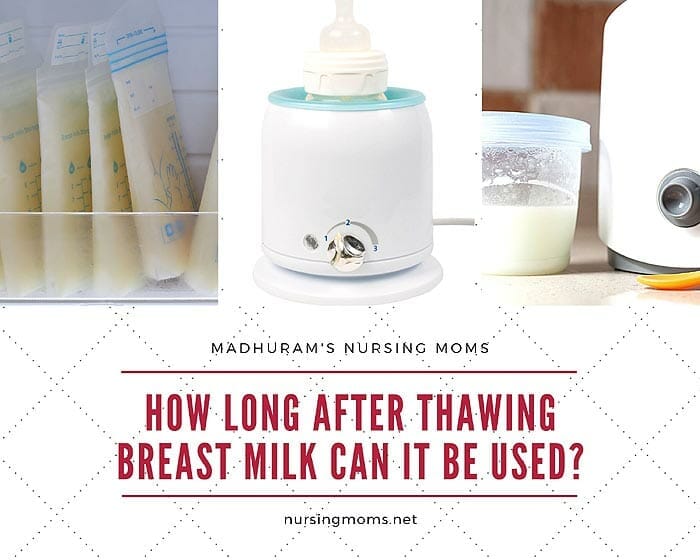
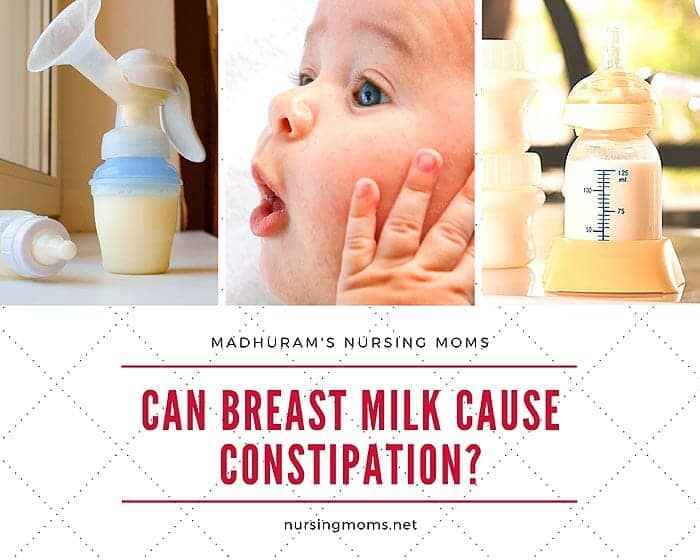
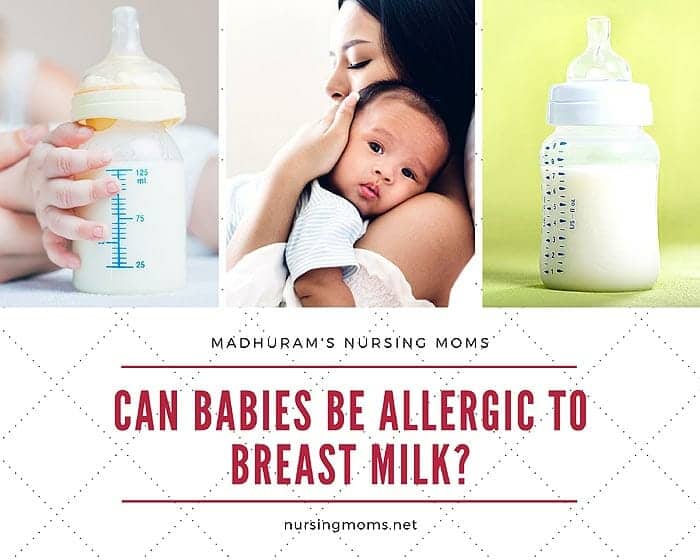
Leave a Reply